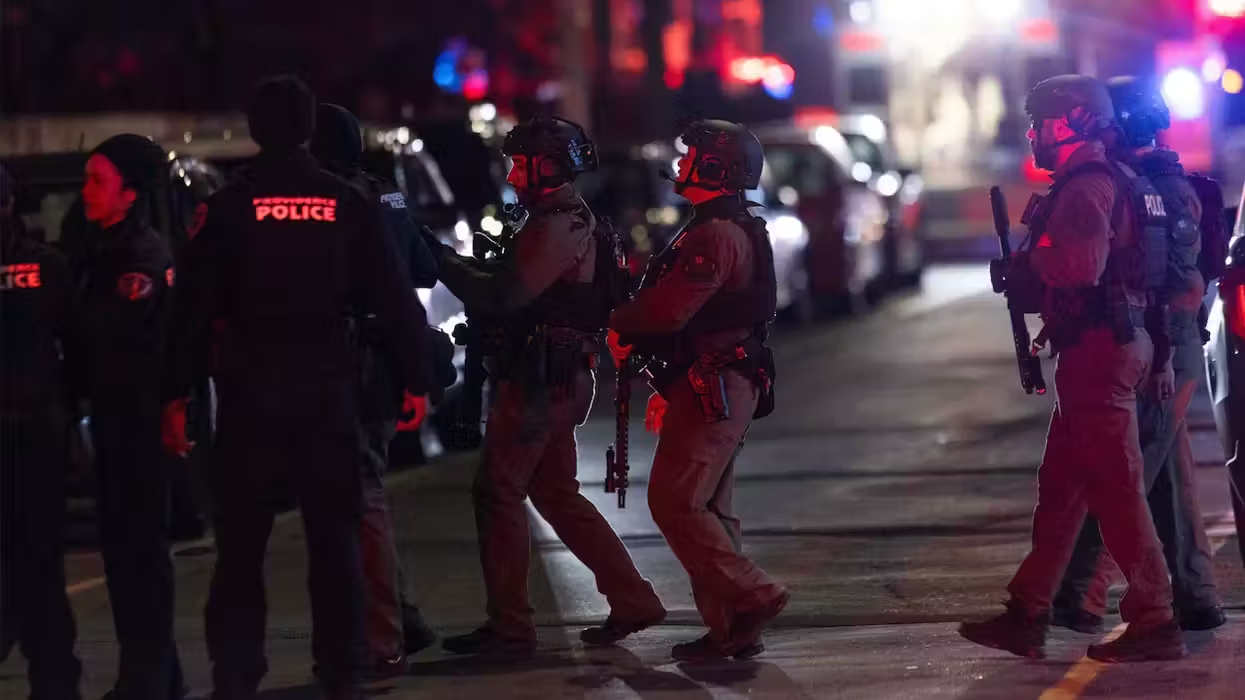An ad appearing in Wednesday's New York Post shows a NYPD officer standing in front of a station, hands on his hips with a blindfold over his eyes.
 NYPD Captains Endowment Association's ad against a city council bill that it believes would "blindfold" officers in their ability to identify suspects in crimes. Bloomberg has said the bill would lead to an onslaught of lawsuits claiming "bias-profiling." (Photo via NYPD)
NYPD Captains Endowment Association's ad against a city council bill that it believes would "blindfold" officers in their ability to identify suspects in crimes. Bloomberg has said the bill would lead to an onslaught of lawsuits claiming "bias-profiling." (Photo via NYPD)
Blind and unable to do their job is what NYPD union officials say a new bill proposed by the city council would do to cops if it prevents them from using race, age, gender and more as identifying characteristics for law enforcement action, according to the Post.
The Post reported NYPD Captains Endowment Association President Roy Richter, who is the officer pictured in the "How effective is a police officer with a blindfold on?”-ad, saying these "are very important descriptive terms to let officers know who to look for."
Introduction 800 of the Community Safety Act would prohibit "bias-based profiling." Bias-based profiling in the bill is defined as "a member of the force of the police department or other law enforcement officer that relies on actual or perceived race, [ethnicity, religion or] national origin, color, creed, age, alienage or citizenship status, gender, sexual orientation, disability, or housing status as the determinative factor in initiating law enforcement action against an individual, rather than an individual's behavior or other information or circumstances that links a person or persons [of a particular race, ethnicity, religion national origin] to suspected unlawful activity." (emphasis added)
In late May, Mayor Michael Bloomberg's attorney sent a letter to the city council asking them to reject the bill, fearing its passage would lead to an onslaught of lawsuits:
“Intro 800 [the bill] would authorize new lawsuits that could result in a blanket prohibition against the use of stop, question and frisk in New York City — and potentially many other strategies and tactics used by the police to address and prevent crime,” Best wrote in the letter, a copy of which was obtained by The Post.
“The bill would permit lawsuits by an ‘individual or organization’ claiming that ‘the activities of law-enforcement officers have had a disparate impact’ upon any of the various categories of people set forth in the bill.
“And in such a lawsuit, a court would be authorized to issue injunctive relief — meaning a court could issue an order prohibiting the policy or practice resulting in the disparate impact.”
At this point, the Post reported the bill is bring brought directly to a vote, which the newspaper notes bypasses the council's usual committee process. The New York Times reported in April New York City Council Speaker Christine Quinn, a mayoral candidate, saying she would allow the vote but that she didn't support the bill. According to the Post, a spokesperson for Quinn's explained that the bill is being voted upon because of its majority support by the council but opposition by Public Safety Committee Chair Peter Vallone Jr. who wouldn't let it out of committee.
Opposition also included other police unions, police commissioner Raymond Kelly and Republican candidates for mayor, according to the Times.
PBA President Pat Lynch told the Post the "council should be supporting its police officers — not attacking them," with "unnecessary laws." Many have noted that racial profiling is already illegal.
The New York Civil Liberties Union has expressed its support for the bill stating that the issue with identifying someone based on descriptions comes when "a person’s race or ethnicity becomes a substitute for some evidence of wrongdoing – and becomes the rationale for a police officer to stop, frisk or arrest that person."
Under the bill, police would be allowed to follow leads based on descriptions but these descriptions alone could not be the basis for a stop-and-frisk.
In a prior article by the Post, opponent Vallone said he believed the provisions in the bill could actually lead to more crime.
“This won’t reform stop-and-frisk; it will end it. Police officers, for good reason, will not put themselves at the mercy of state judges and will refuse to get out of their cars,” he said. “As a result, criminals will again be emboldened, and crime will spike.”
--
[related]

 NYPD Captains Endowment Association's ad against a city council bill that it believes would "blindfold" officers in their ability to identify suspects in crimes. Bloomberg has said the bill would lead to an onslaught of lawsuits claiming "bias-profiling." (Photo via NYPD)
NYPD Captains Endowment Association's ad against a city council bill that it believes would "blindfold" officers in their ability to identify suspects in crimes. Bloomberg has said the bill would lead to an onslaught of lawsuits claiming "bias-profiling." (Photo via NYPD)






